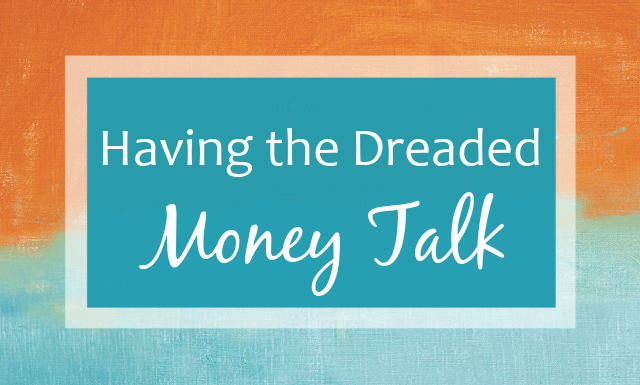Every time I bring on a new client, I ask if they plan to show prices on their website. What usually follows is so much hemming. And hawwing. So much indecision.
We love our jobs, don’t we? Hell, many of us are guilty of giving away free work. But that is not a sustainable business model.
Talking about money with clients can be a huge stress factor. So, how do you get over quoting people and getting paid?
Develop A Healthy Money Mindset
Because of our desire to help others, especially if we perceive they are just starting out, it can cause us to cheapen our services. The truth is, under quoting your services is a disservice to you and your clients. When you underbid a project, you end up resenting the work you are doing and it effects the way you perform for all of your clients.
Before you price your services or talk prices with a prospect, you need a healthy money mindset. One where you aim to charge a fair wage for the work you do and unapologetically ask for that rate.
An unhealthy mindset is one where you put aside your ability to earn enough money to pay your bills for the sake of someone else’s budget. That is not beneficial to you or them.
Get Clear On Your Costs To Do A Project
Think about your overhead expenses.Figure out what you really need to earn to cover your expenses for the work you do and make a profit. Remember to factor in administrative tasks, like emailing, recordkeeping and project management, When you know how much you need to earn, it makes quoting clients much easier. You’ll also know if you have any wiggle room in your pricing.
Be Prepared to Walk Away From Any Deal
When discussing project costs, you have to decide from the outset that you are willing to lose the deal if the client tells you that you’re outside of their budget. It’s normal to want to give a discount or come down on your pricing to close the deal, but you almost always regret it. Clients that don’t understand the value of what you do tend to be high-touch clients. It’s not a good combo. And under-chargin can end up actually costing you money.
Before having the sales call, remind yourself that you may need to walk away from the deal if their budget and your prices don’t align. It will make it a lot easier to stick to your guns.
Talk About Money Up Front
Every company has to decide how and when they will bring up money, but it’s important to do that as soon as possible. If you are offering a monthly service that has a set rate, consider sending them the pricing in advance and ask them to look over it before scheduling a call. You can do the same thing with projects that will require a meeting to put together a quote. Give the prospect a range in advance. This will weed out people who aren’t ready to spend that much on the service they want.

Also, if you send your pricing in advance, this gives you the opportunity to share case studies, client outcomes, detailed information on your services, and other information a prospect needs to know. Consider putting together a proposal that outlines what benefits the prospect will receive from your services, who you are, who you work with, and a clear pricing structure.
While this is not the approach that a lot of experts recommend, it can be a very good strategy for a freelancer or small business. If you are the only person in your company that is doing sales calls, putting together quotes, and handling the work, weeding out in advance will save you a lot of headache. No matter how good of a sales pitch you have, if someone doesn’t have your services in their budget, they are not going to move forward.
Find Out What They Have Budgeted
Even if you send your pricing before a sales call, you can ask a prospect their budget ahead of time. One way is to put the question on your contact form. You can put price ranges they can choose from. Or you can say that clients usually spend x – y on the service.
If you have potential clients who call you on the phone or reach out through other means and bypass a form submission, make it part of your sales call to ask them what they plan to spend on the service. For a less direct way of asking their budget, you can ask them what they’ve paid on this type of service in the past. This will give you a heads up of how they will react when you give them a concrete price.
Breakdown, But Don’t Justify

Be transparent with potential clients and let them know why you have priced your services the way you have. Have a full breakdown of what you do for the prices you charge and encourage them to compare it to the prices they receive from other companies.
Some people will look at your package of 10 things for $1,000 and figure that you’re charging $100 per thing. Then they might say, “I need only 8 things, so that’s $800, right?”
It’s really important to outline exactly what they’ll receive for what you are charging, or they will just get hung up on the number. Focus on the value you offer for the price, not the price in and of itself.
No Discounts Ever (But Offer Other Packages)
Think of a few optional packages you could hold in reserve for projects you find intriguing, or clients you really want to work with. Start with one of your standard offers, then remove some of the deliverables.
Don’t lead with this lower offer, but have it as a backup plan to offer something in their price range that will still benefit them, but doesn’t discount your services.
Encourage Them To Come Back When They Can Afford It
If you are on a call with someone that tells you they can’t afford your services, kindly encourage them to come back when they are in a better place. Come at this from a place of genuine care for the person and let them know you understand they have to make a good business decision. When you communicate that you really care about them and their success, it can lead to them using your services later down the road.
The more you talk about money with prospects, the easier this will become. If you’re just starting out, use these tips to help guide you on talking about money and closing deals.
Resources for Business Owners
Should I List My Prices?
Need a New Web Manager?
Start a Business Blog

